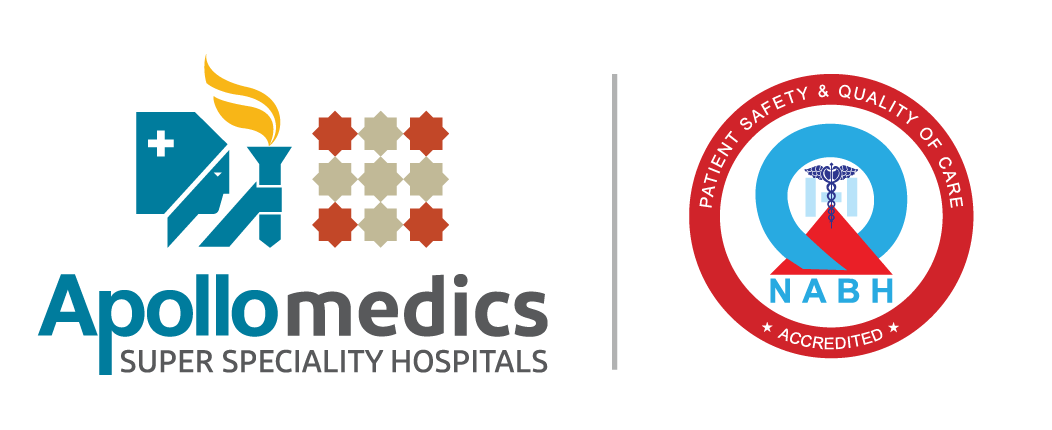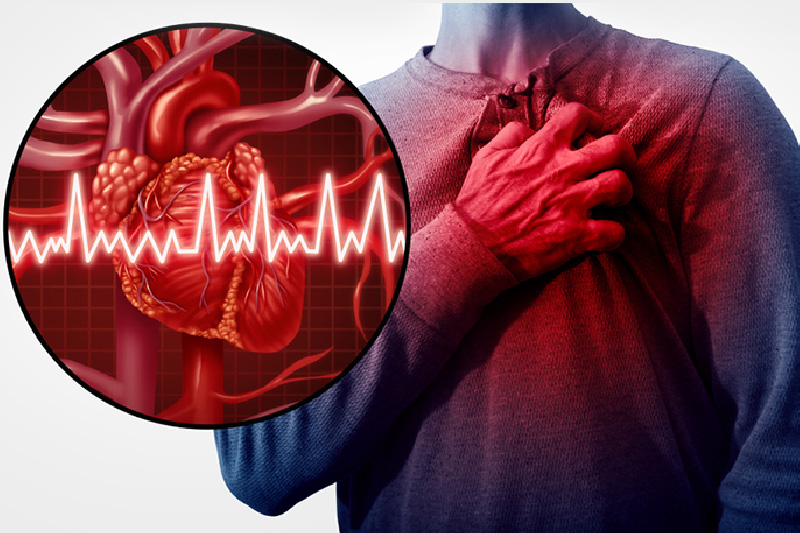Heart attack is a serious medical emergency which can occur due to the blockage (usually blood clot) of blood reaching to the heart. This blocked blood flow can damage heart muscle.
Why Heart Attack Occurs?
- The blood supply is reduced due to slow process (called ischemia)and change in blood vessels diameter because of the collected lipids called atherosclerosis may cause a heart attack.
- Heart attack can happen due to clotting of blood in the blood vessel (artery)supplying the part which may cause serious damage to heart muscles and can be life threatening.
- An embolism can also be a main cause of heart attack on which a broken part of the clot from somewhere else coming with the blood to the part and blocking the concerned vessel which restrict blood reaching heart.
- Arteriosclerosis (hardening of the concerned vessel) isthe depositions of calcium in the vessel wall makes it hard and restrict blood flow.
Symptoms of Heart Attack
Some common heart attack symptoms and signs which can help you identify include:
- Tightness in chest
- Pain near heart
- Feeling high pressure
- Aching sensation in the chest and arms that may spread to neck, jaw and back
- Shortness of breath
- Dizziness
- Cold sweat
- Fatigue
- Nausea
- Abdominal pain
- Indigestion
- Heart burn
- Dizziness
If you or someone around feels the same, please take them to the hospital at the earliest to save life and prevent heart muscle damage.
For Ambulance in Lucknow Call 0522 67 88 888
Heart attack symptoms may vary with from person to person. Some people may have severe pain in chest and arms; others have mild pain. Heart attack occurs suddenly, but with some symptoms and signs from hours, days or weeks in advance.
What to do, if you have a heart attack?
Don’t wait for too long, if you suspect a heart attack call 0522 67 88 888.
If you don’t have any emergency medical support in near you, ask someone to drive you to the nearest hospital.
If no one available with you, drive yourself to nearest hospital; driving yourself can worsen situation and put you and others at risk.
Taking an aspirin during heart attack may reduce the heart muscle damage and keepyou from blood clotting (Take only if the doctor recommends).
What to do if you see someone who might be having a heart attack?
If you found someone unconscious and may have a heart attack, firstly call 0522 67 88 888 (medical emergency help / ambulance). Then check the pulses and breathing, if the person is not breathing or found no pulse, you should start giving a CPR to keeps the blood flowing.
Pump the person’s chest 100-120 times in a minute hard and fast. If you are not trained in CPR, only do chest compression but if trained go for opening airway and rescue breathing.
Heart attack risk factors involved:
There are many factors which contribute to narrowing your arteries and unwanted buildup of fatty substances. You can reduce the chances of heart attack by eliminating many of the risk factors. Risk factor includes:
- Age: Older persons are more likely to have a heart attack than younger person. Men’s age from 45 and above and women’s age from 55 and above are prone to heart attack due to lifestyle.
- Tobacco: Chewing, smoking or exposure to long term second hand smoke.
- High blood pressure: over the time, high blood pressure damages arteries that supply blood to your heart.
- High blood pressure occurs due to obesity, diabetes or high cholesterol which additionally contributes to increase risk.
- Obesity: Eating food with high cholesterol and fatty acids, high blood pressure and diabetes promotes obesity. Controlling weight and reducing it to 10% of your body weight can reduce the risk of heart attack.
- Diabetes:pancreas is an important organ which produces insulin to control your sugar level in the blood which leads to increasing risk of heart attack.
- Family history of heart attack: If your siblings, parents, grandparents had early heart attacks then you might be in increased risk.
- Lack of physical activity: Exercising and physical activities contributes to lowering your sugar level, obesity and cholesterol in blood. Being inactive means you may have a better cardiovascular fitness.
- Stress: stress can be the reason of heart attack because it contributes to high blood pressure.
- Illicit drug use: Using drug like cocaine or heroin contributes to high blood pressure, increased heart rate and trigger spasm which damage arteries that feed heart.
Complications:
Complications come with the damage to your heart during heart attack. The complications may vary from low to high risks which may lead to:
- Abnormal heart rates: After the heart attack, mostly the portion of heart muscle stop working which leads to malfunctioning and causes fluctuating heart rate. It can be low or high leads to severe situations.
- Heart Failure: A heart attack can extensively damage your heart muscles and tissues or may cause permanent damage, due to which the heart may not pump properly and create a severe situation.
- Sudden Cardiac Arrest: The damages done to heart muscles and tissues due to the heart attack increase the risk of sudden cardiac arrest which can create serious situations and need immediate action to prevent damage.
Prevention:
“Prevention is better than cure.”
Prevention is the key to avoid risks and harm to your body and heart, even if you’ve already had one. Here are the ways to prevent you from heart attack.
Medications: taking medicines can protect and prevent your heart from damage and help in better heart functioning. Continue your medicines as prescribed by your doctor and go for regular checkups.
Lifestyle: Knowing your lifestyle and changing to healthy one is the best thing to do. Maintaining your weight, regular exercise, stop smoking, stress management, heart healthy diet, stop illicit drug use and control the conditions which lead to heart attack such as diabetes, high blood pressure and high cholesterol.
Book Health Check Up



